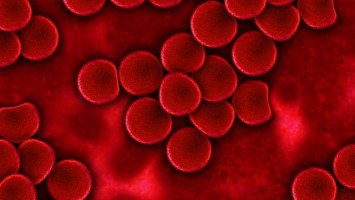
Pioneering research into how our bodies manufacture the cells that make blood has moved us closer to regrowing tissues and organs.
The findings also may let doctors grow the cells for transplantation into people to battle cancer, blood disorders and autoimmune diseases.
Researcher Karen K. Hirschi, PhD, of the Department of Cell Biology and the Robert M. Berne Cardiovascular Research Center at the University of Virginia School of Medicine, has developed a simple and efficient way to generate "haemogenic endothelial cells."
These cells are the first step in the production line of blood cells, and Hirschi's new findings provide a blueprint for creating them outside the body.
"By studying how haemogenic endothelial cells develop normally, we gain insights needed to generate them in the lab," Hirschi said. "Now that we have established a method to produce human haemogenic endothelial cells outside of the body, we will continue to improve their production and function as we learn more about the mechanisms that promote their normal development."
Hirschi's latest work, published in a pair of scientific papers, offers important insights into how haemogenic endothelial cells form and how they ultimately give rise to the cells that directly manufacture blood throughout our lives.
Writing in the prestigious journal Science, she and her team reveal a key trigger that causes the endothelial cells to "transdifferentiate," or turn into blood-making factories, during embryonic development.
These blood-making (i.e. haemogenic) endothelial cells generate haematopoietic stem and progenitor cells (HSPCs) that have long been used for the treatment of cancer and other diseases.
Typically, they are taken from sources such as an individual's bone marrow, but doctors would like to be able to manufacture them quickly and easily for patients on demand.
"Generating human haemogneic endothelial cells in the lab from each patient that needs HSPC is the first step toward patient therapies for blood disorders," Hirschi said.
In a paper published nearly simultaneously in Cell Reports, Hirschi unveils a blueprint for creating the haemogenic endothelial cells, the source of HSPCs, outside the body.
The secret is a substance called retinoic acid.
You may have heard of retinoic acid in association with beauty products, but in this case its responsibilities include triggering genes to cause "haematopoietic transition" - to put more vascular endothelial cells in the business of making blood by producing HSPCs.
The new insights provided by the work "will improve our ability to apply developmental insights to the generation of distinct endothelial cell subtypes for tissue engineering and regenerative medicine," the researchers write in their new paper.
"In addition, our system could likely be developed further to optimise the generation of transplantable HSPCs from human haemogenic endothelial cells for clinical therapies."
The approach offers several advances over existing means, including being quicker and less expensive, the researchers note.
"We hope our continued efforts will move us closer to treating both vascular and blood disorders," Hirschi said. "These studies highlight the importance of basic cell and developmental biology research as a foundation for devising strategies for patient-specific clinical therapies."
Hirschi was recruited from Yale in 2019 to join the faculty in the Department of Cell Biology, which has long been interested in addressing how embryos develop and applying this basic knowledge to the repair and regeneration of damaged tissues and organs.
The World Cancer Declaration recognises that to make major reductions in premature deaths, innovative education and training opportunities for healthcare workers in all disciplines of cancer control need to improve significantly.
ecancer plays a critical part in improving access to education for medical professionals.
Every day we help doctors, nurses, patients and their advocates to further their knowledge and improve the quality of care. Please make a donation to support our ongoing work.
Thank you for your support.